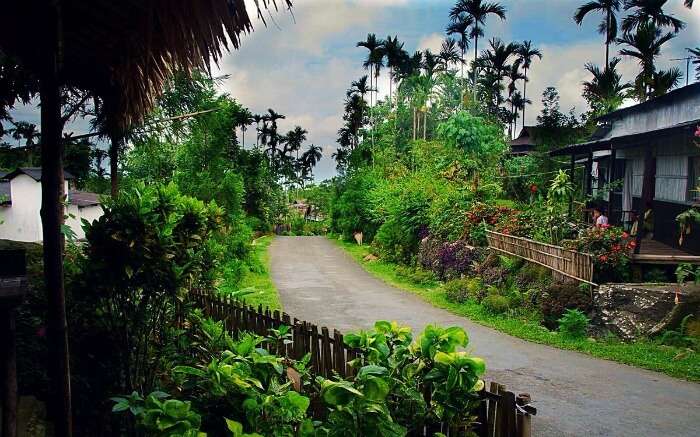Tourists planning day trips to Mawlynnong will soon have to rethink their itineraries, with the village authorities deciding to bar one-day visitors every Sunday from January 2026. The directive, announced through an official notification by the Mawlynnong Village Dorbar after a series of deliberations, marks a notable shift for a destination often promoted as one of Asia’s cleanest villages.
The Dorbar said the village would open to tourists only from Monday to Saturday. On Sundays, all tourist-related services, restaurants, local shops and stalls, and even public toilets, will remain shut. The decision, the Dorbar clarified, stems from longstanding religious practices that shape community life. Villagers dedicate most of their Sundays to church services, leaving hospitality providers unable to offer proper assistance to visitors.



Such constraints, the Dorbar noted, have occasionally inconvenienced tourists, particularly senior citizens, and risked creating situations that could “damage the village’s reputation among visitors. We do not wish that to happen,” the notification stated.
Two exceptions have been outlined for tourists opting to stay overnight. Visitors who have already checked into homestays or guest houses during weekdays and extend their stay until Sunday will not be affected. Tourists wishing to book accommodation on Sunday nights and check in that day are also exempt. In both situations, the responsibility for hosting will rest entirely with the respective homestay or guest house owners.
Also read: 'Heal Buxa Hills' mission takes cue from Meghalaya’s Mawlynnong
The Dorbar has appealed to tourists, visitors, tour operators, and all stakeholders for cooperation when the new arrangement comes into effect in 2026.
Located in Meghalaya’s East Khasi Hills district, Mawlynnong has earned repeated acclaim for its grassroots model of environmental stewardship. The belief that cleanliness is next to godliness is woven into daily life: household and public waste is collected in bamboo dustbins and taken to pits, where it is converted into manure. Community-led sanitation is central, with every resident contributing to the village’s upkeep. Smoking and the use of polythene are strictly prohibited, while rainwater harvesting is widely practised.
These practices, coupled with the village’s reputation as “Asia’s cleanest village,” have helped turn Mawlynnong into a major tourism draw over the past two decades, significantly shaping local livelihoods. The upcoming Sunday closure marks a recalibration of that model, an attempt to balance tourism with cultural rhythm, community obligations, and the preservation of the village’s identity.





